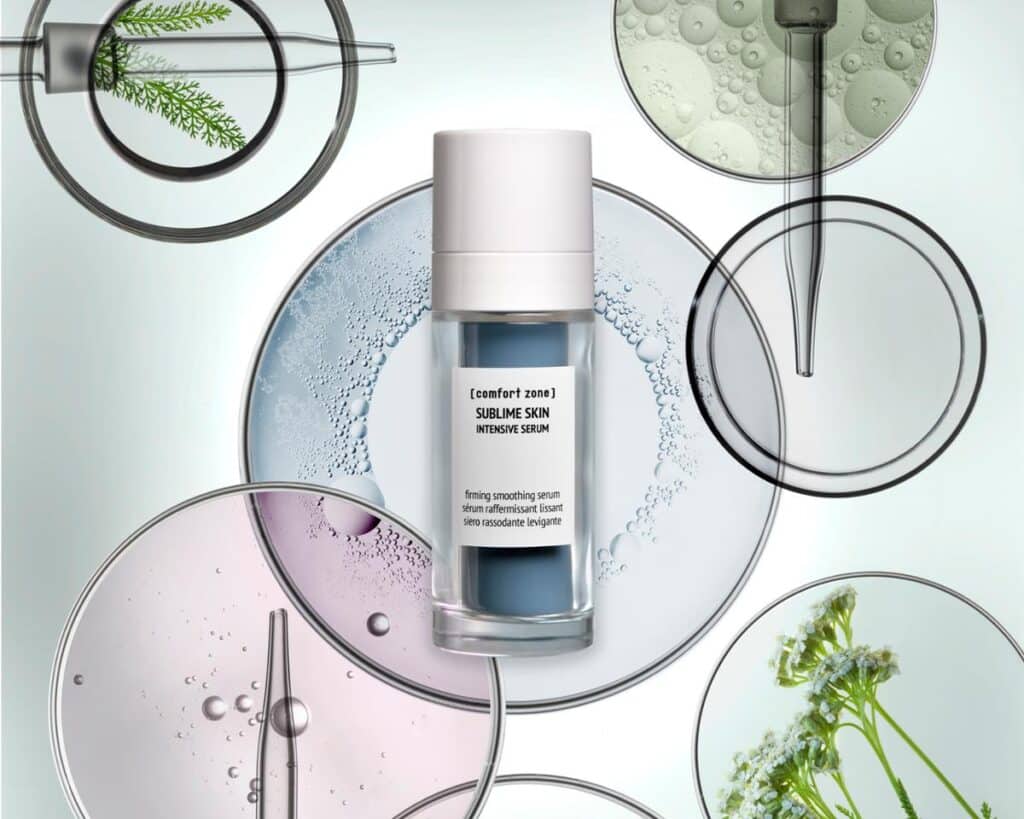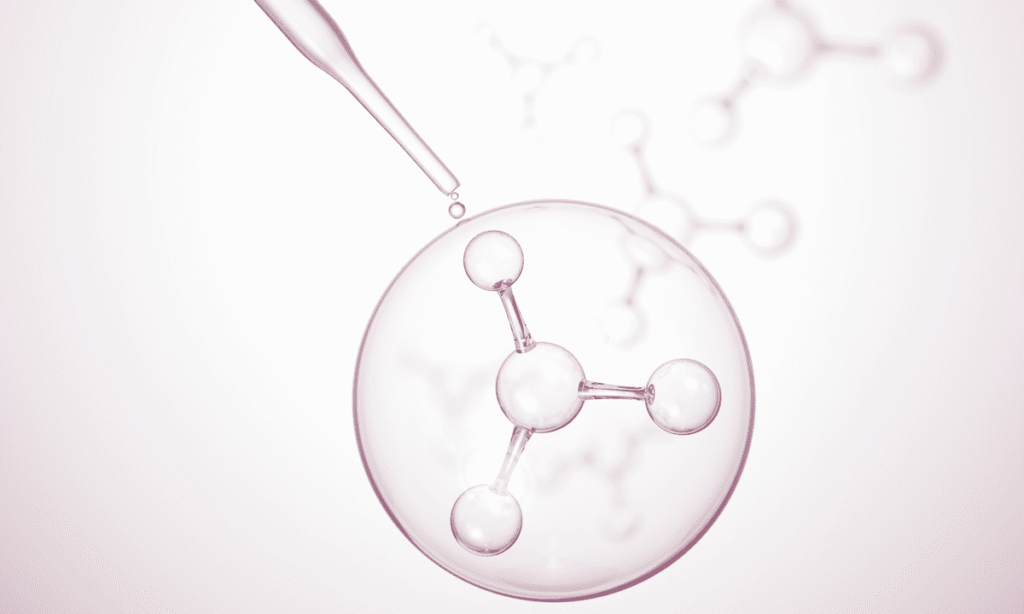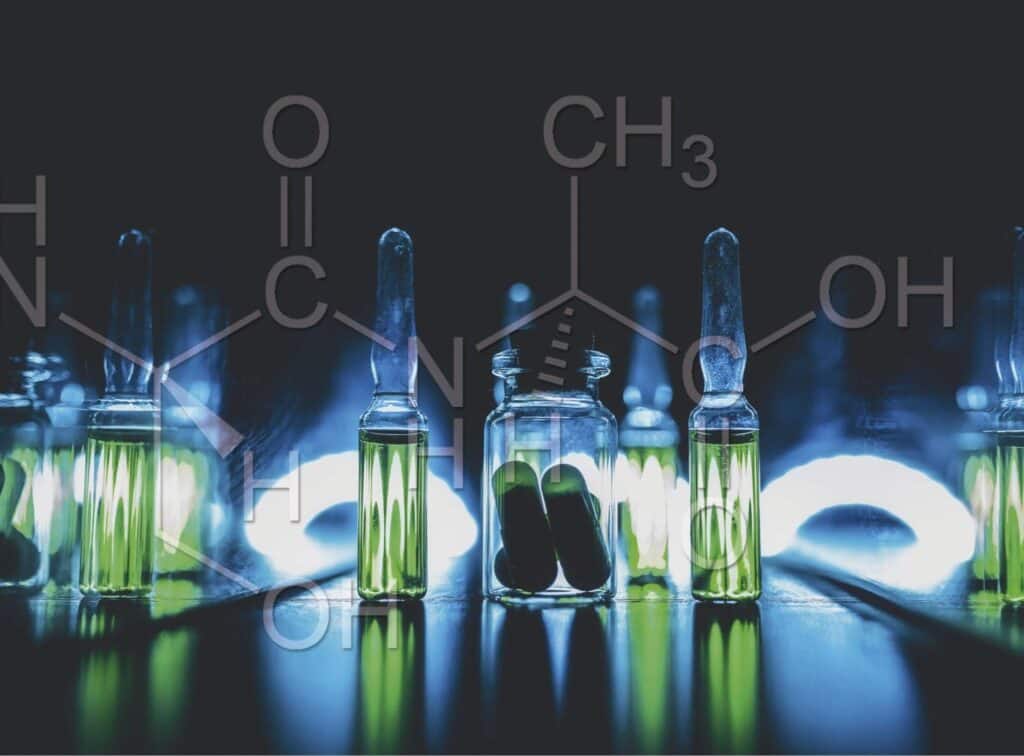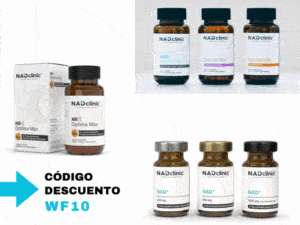In recent months, peptides have become the new buzzword in the world of wellness, beauty and fitness. From anti-ageing creams to supplements and injectable treatments, they seem to promise everything: regenerating tissue, improving skin, speeding recovery or even delaying ageing. But what is the truth behind this trend?
What they are and why they are fashionable
Peptides are short chains of amino acids -the same proteins that make up proteins- and act as biological messengers which regulate numerous functions in the body. Their small size allows them to interact with cells and tissues to activate or modulate specific processes: from collagen synthesis to muscle repair or hormone signalling.
Their rise is due to two factors: biotechnology, which has made it possible to synthesise them with precision, and the growing interest in treatments that stimulate the body's natural mechanisms rather than replacing them.. In cosmetics and longevity, peptides fit perfectly into this philosophy.
What they are used for
In the field of cosmeticpeptides are incorporated into creams, serums or ampoules because of their ability to stimulate collagen and elastin production, improve skin texture and promote skin repair. Although they are not a "topical botox", they can help to improve firmness and radiance if the formulation is appropriate and the product is well preserved.
At medicinepeptides are approved as drugs for the treatment of metabolic, hormonal or autoimmune diseases. These compounds are administered under medical prescription and control, as their action is potent and specific.
There is also a proliferation of research peptidesavailable on the internet under the label "for research use only". They are not authorised for human use and may pose a serious health risk due to their lack of control, purity and traceability.

How they are used
The peptides can be applied via topical, oral o injectablealthough each form has its own particularities.
- Topics: are included in cosmetics for skin application, usually in combination with other active ingredients such as hyaluronic acid or vitamin C. They are the safest and most affordable option.
- Oral: Most are degraded in the digestive system, so only a few pharmaceutical peptides achieve oral efficacy through special formulations.
- Injectables: should only be used under medical supervision and with products authorised by the Spanish Agency for Medicines and Health Products (AEMPS). Injections outside this framework are illegal and potentially dangerous.
Peptides, proteins and other actives: how do they differ?
Proteins are long chains of amino acids; peptides are shorter and act as bioactive fragments with specific functions. Compared to other cosmetic actives such as retinoids or vitamin C, peptides stand out for their role as "messengers" that tell cells what to do.
However, it is important to distinguish cosmetic peptides - safe and regulated - from those that mimic hormones or growth factors, used in medical or sports settings. Some of the latter are included in the World Anti-Doping Agency (WADA) prohibited substances list.
How to recognise a quality peptide
Before buying or recommending a product, it is useful to review some key points:
- Clear and comprehensive labellingwith INCI name, manufacturer, batch and country of origin.
- Certificate of Analysis (CoA) that guarantees purity and absence of contaminants.
- Manufacturing under GMP standards (Good Manufacturing Practices).
- Proper storage conditionsas many peptides are sensitive to heat and light.
- Authorised sales channelssuch as pharmacies, cosmetic laboratories or distributors with health registration.
Be wary of any product without traceability or labelling indicating "for research only" or "not for human use".
What the law says in Spain
In Spain, the peptide cosmetics can be freely sold if they comply with the European Cosmetics Regulation and are notified in the CPNP Portal of the European Union. The peptide drugsHowever, they can only be manufactured and dispensed with authorisation from the AEMPS, and in many cases require a prescription.
The pharmacies can also develop magistral formulations with peptides, provided that there is a prescription and that traceability and quality control standards are met.
The use and marketing of unauthorised injectable peptides - very common on foreign sites - is illegal in Spain and can lead to penalties for both the seller and the user.
Risks and recommendations
The main risk of peptides outside of the health care circuit is the counterfeiting or contamination. Some products contain impurities, incorrect dosages or substances other than those declared. In addition, uncontrolled injectable use can cause serious adverse reactions.
Experts therefore recommend purchasing only regulated products, requiring the appropriate documentation and, in the case of injectable or therapeutic treatments, always using accredited medical professionals.
Peptides represent one of the most exciting frontiers of biotechnology applied to wellness and longevity. But their potential is only realised when used with knowledge, safety and responsibility.







